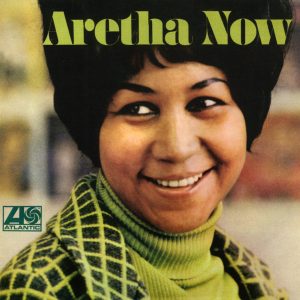 Richard Thompson’s career is hard to sum up because it is so long, varied and distinguished. Though he is thought of by many primarily as a songwriter, Thompson placed 19th in Rolling Stone’s 2011 feature on the top 100 guitarists of all time.
Richard Thompson’s career is hard to sum up because it is so long, varied and distinguished. Though he is thought of by many primarily as a songwriter, Thompson placed 19th in Rolling Stone’s 2011 feature on the top 100 guitarists of all time.
This is what David Fricke wrote about Thompson in the story:
By the time he left [Fairport Convention], in ’71, Thompson had created a seamless world music for acoustic and electric guitar drawn from Celtic minstrelsy, psychedelia, Cajun dance tunes and Arabic scales. He is also one of Britain’s finest singer-songwriters. His records with his former wife Linda, made between 1974 and 1982, are marvels of hair-raising musicianship and emotional candor. Try to see him live, with an electric band: The solos run long and wild.[/column][column size=one_half position=last ] [/column]
This is how Wikipedia assesses his playing style:
Thompson makes use of the “pick and fingers” technique (sometimes referred to as “hybrid picking“) where he plays bass notes and rhythm with a pick between his first finger and thumb, and adds melody and punctuation by plucking the treble strings with his fingers. He also makes use of different guitar tunings, such as (low to high) CGDGBE, DADGBE, DADGAD, and more. This enables him to adapt traditional songs, as on Strict Tempo! and 1000 Years of Popular Music. Thompson occasionally makes use of a thumb-pick, playing in fingerstyle, the most notable example being on the motorcycle ballad “1952 Vincent Black Lightning.”
My impression — one that may well be woefully off — is that the incredible explosion of great guitarists in Great Britain that were born during and just after World War II was divided between the great electric players with whom we all are familiar and less well known but equally skilled acoustic players such as John Renbourn and Bert Jansch. Thompson, it seems, is one of the only ones who truly straddled the line.
It’s a bit harder to find assessments of Thompson’s songwriting. Guy Little touches on it, however, in a story late last year in the UK magazine Acoustic:
Richard’s songs are known for their somewhat sombre lyrical content. In fact, he once described his output as thus: “I do two kinds of songs: down-tempo depressed songs and up-tempo depressed songs…” Nevertheless, his compositions have been covered by many different artists – take, for instance, Bonnie Raitt’s version of Richard’s ‘Dimming Of The Day’ – just about as heart-rending as it’s possible to get, scoring very high indeed on the not-a-dry-eye-in-the-house scheme of things when played live. But there have also been covers by bands as diverse as The Blind Boys Of Alabama, REM and Los Lobos. How does Richard feel about these and other covers of his songs?
The playlist has the tip of the iceberg of Thompson hits. I was particularly interested by his recording of Britney Spears’ “Oops!…I Did it Again,” which was written by Max Martin and Rami Yacoub. On one level, it could be seen as a joke. Perhaps that’s all it is. But the sense from Thompson’s comments is that while he doesn’t necessarily think that it’s a good song, he sees something in it. Certainly, bit more than the rest of us do and perhaps even more than Spears herself.
It’s just a thought. But the question remains: Why would Richard Thompson cover — and pretty seriously — a Britney Spears song? Thompson says that the chord sequence is “reminiscent of other centuries” and plays part of the song in what he says is a 16th century style. He pulls it off and, perhaps most importantly, respects the song and by extension, Spears.
Wikipedia’s entry on Richard Thompson and the song “Opps!…I Did it Again,” Rolling Stone, Shareranks, Richard Thompson and Acoustic magazine were used in preparing this post. Photo credits, in order of the thumbnails on the songs in the playlist: Anthony Pepitone, Kevin Smith (two and three). 6tee-zeven and Brian Marks.










Add Comment